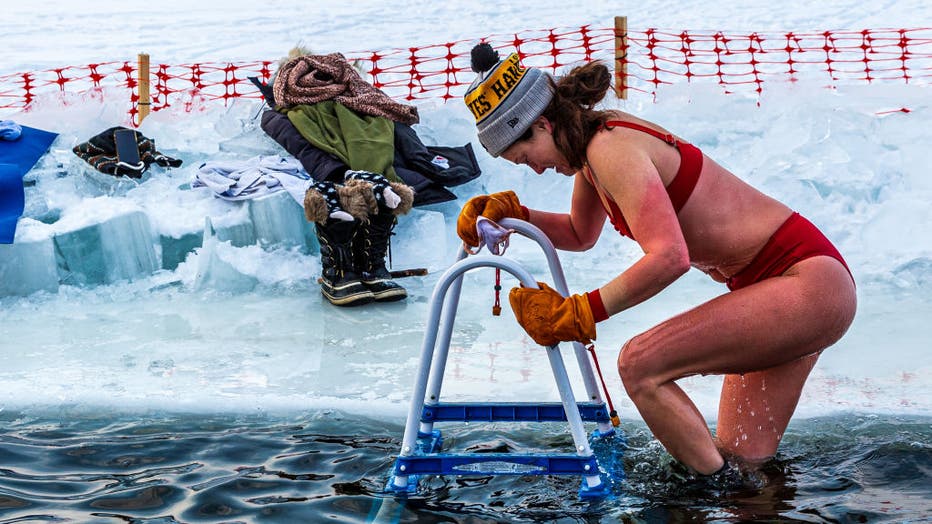Cold plunges may help your cells fight stress, new study shows

April: National Stress Awareness Month
Dr. Terry Lyles joins LiveNOW from FOX to talk about April being recognized as National Stress Awareness Month. Dr. Lyles offers tips for people to live a healthy lifestyle.
LOS ANGELES - The popularity of cold plunges is rising fast, with claims ranging from muscle recovery to mental clarity. Now, new science is backing up at least some of the hype—at the cellular level.
A team of researchers at the University of Ottawa has found that repeated exposure to cold water can improve your body’s cellular response to stress, potentially helping to prevent disease and even slow the aging process.
Their study focused on autophagy—the body’s natural process of recycling damaged cells—and apoptosis, or programmed cell death, which eliminates malfunctioning cells.
What happens to your cells in the cold?
The backstory:
The research, conducted at the Human and Environmental Physiology Research Unit (HEPRU), involved 10 healthy young men undergoing one hour of cold-water immersion at 14°C (57.2°F) for seven days straight. Blood samples taken before and after the sessions revealed dramatic shifts in cellular behavior.
Initially, intense cold appeared to impair autophagy. But after consistent exposure, the cells began showing enhanced autophagic activity and fewer signs of damage.
"We were amazed to see how quickly the body adapted," said postdoctoral fellow Kelli King, the study’s lead author. "It’s like a tune-up for your body’s microscopic machinery."
Why cold plunges might be more than a trend
Why you should care:
According to Professor Glen Kenny, who co-authored the study and leads the lab at uOttawa, these results suggest cold acclimation could be an important tool for building resilience—not just for athletes but for anyone facing environmental stress or health risks.
"This enhancement allows cells to better manage stress and could have important implications for health and longevity," Kenny said.

FILE - A member of the "Submergents" group comes out of 37.4° F (3° C) water after taking the plunge in a "pool" carved from the ice at Lake Harriet in Minneapolis, Minnesota, on January 30, 2021. (Photo by KEREM YUCEL/AFP via Getty Images)
Improved autophagic function is linked to everything from reducing inflammation to preventing age-related diseases. The findings offer promising clues about how regular cold exposure could protect your health at the most fundamental biological level.
Who this applies to (and who it doesn’t—yet)
What you can do:
The research was conducted exclusively on young adult males. It remains unclear whether the same cellular benefits would occur in women, older adults, or people with certain health conditions.
Further studies are needed to determine optimal exposure times, temperatures, and long-term effects. Researchers also emphasized that cold plunges should be approached with caution and awareness of individual health risks.
The Source: This report is based on a new study by researchers at the University of Ottawa's Human and Environmental Physiology Research Unit (HEPRU), led by postdoctoral fellow Kelli King and Professor Glen Kenny. Their peer-reviewed research analyzed the effects of repeated cold water exposure on cellular stress responses in young male participants. Statements were provided by the University of Ottawa and published with the study findings.

